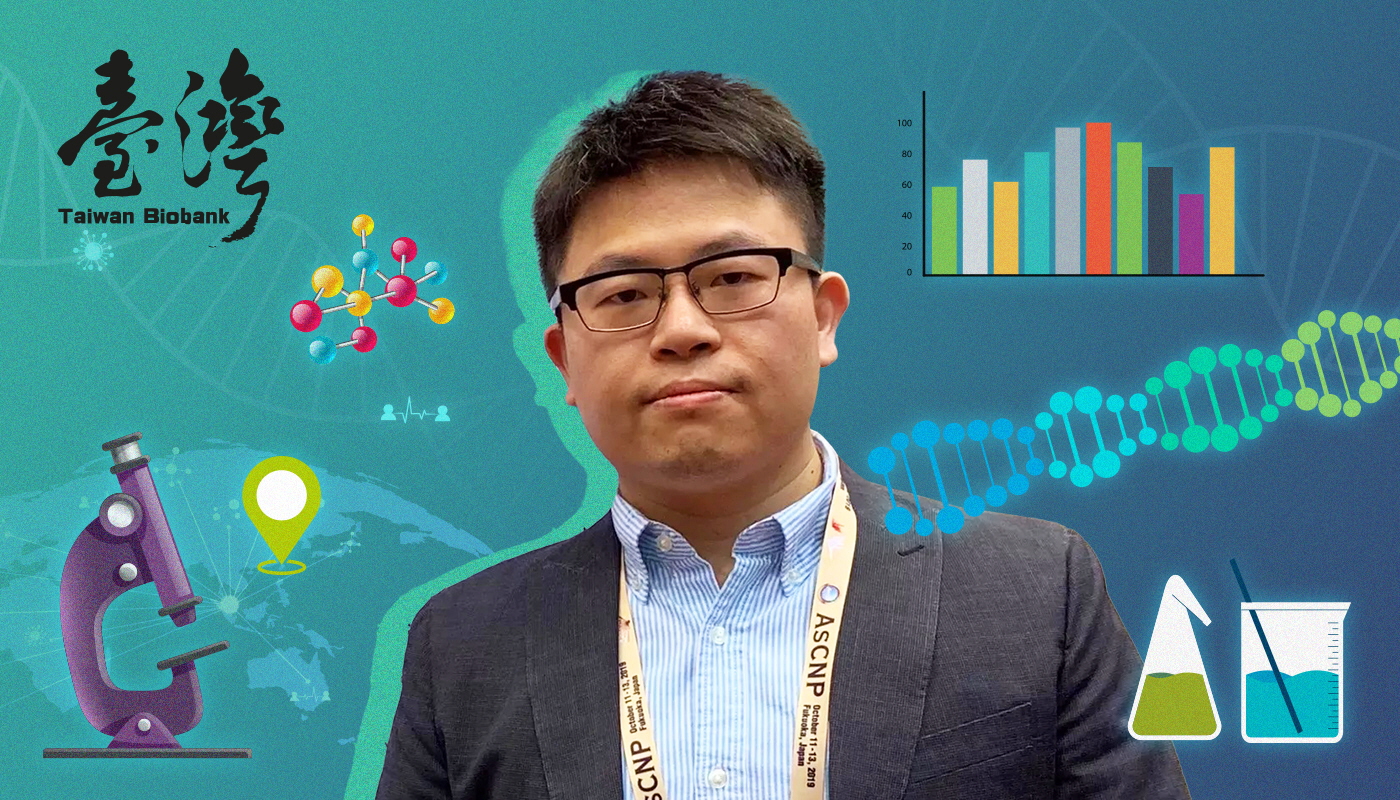Taiwan Biobank: An East Asian Resource for Precision Medicine

Central to Taiwan’s strategy of promoting precision health is the Taiwan Biobank, an ongoing cohort study to investigate lifestyle, environmental and genetic risk factors unique to the Taiwanese population; as well as to facilitate the discovery of prevention and treatment strategies for both common and complex diseases.
The biobank has its roots in the Taiwanese government’s plan to turn Taiwan into an “island of biomedical technology” in 2005, where it was envisioned as a repository of large-scale biomedical and genomic data from the Taiwanese population.[1] The Taiwan Biobank was launched in 2012 with the target of recruiting 200,000 Taiwanese adults aged 20 to 70.
Data such as physical measurements and biosamples such as blood and urine samples were collected at recruitment, with participants answering a comprehensive questionnaire covering aspects such as lifestyle and family history. Over 30 recruitment sites were established, ensuring representation across Taiwan’s cities and counties. As of April 2025, approximately 203,000 participants have been recruited.[2]
Investigating an East Asian Population
Taiwan is considered relatively homogenous with a predominantly Han Chinese population, where the culture is a blend of local traditions with western influences. The questionnaire administered to biobank participants included a unique set of questions special to Taiwan, such as chronic exposure to incense (e.g. mosquito coils or joss sticks used in religious rituals) and betel nut chewing (a cultural practice). Researchers noted the potential influence of social determinant of health, with one such study identifying incense exposure to be a risk factor for cognitive decline.[3]
Starting from 2016, the biobank has also initiated the follow-up process to capture changes in participants’ measurements and health status. Participants also underwent additional scans such as electrocardiogram and ultrasound, enriching the data collected for the research study.
Facilitating Efficiency in Research
Similar to many Nordic countries, Taiwan also offers universal healthcare coverage in the form of the National Health Insurance (NHI). The NHI covers almost 100% of the Taiwanese population, with the system streamlining comprehensive electronic health record, medical claim and health insurance data.
Researchers in Taiwan have the option of linking biobank data with the NHI database, along with national registries such as those for cancer and cause of death. One researcher who has tapped on this data is Dr Lin Yen-Feng, Associate Investigator Attending Physician, Center for Neuropsychiatric Research, National Health Research Institutes (NHRI), Taiwan.
Dr Lin, whose research interests include precision psychiatry and genetic epidemiology said, “One of my research projects focuses on identifying why patients respond differently to antidepressants. Although clinical studies can collect more detailed data, they are often limited by smaller sample sizes. If biobank data can be linked with medical information, it would enable large-scale investigations of the relationship between genetic factors and real-world treatment outcomes.” By linking Taiwan Biobank data with the NHI database, Dr Lin and his team were able to effectively zoom in on a cohort that had been diagnosed with depression, and review significant trends such as medication history, to speed up and ramp-up the research process.
He said, “Continuous breakthroughs in genotyping and sequencing technologies, along with improvement in data analysis techniques, are offering exciting opportunities to answer questions about psychiatric diseases that, until now, we could only guess at. But uncovering the truth requires good and accurate data, which patients may not always be able to provide due to social stigma or difficulty recalling details. Having access to unbiased data records helps remove a layer of uncertainty and supports our efforts to better understand psychiatric disorders.”
Enabling Future Precision Medicine
As of 2024, Taiwan Biobank data has been used in over 280 research projects and 300 publications, mostly by domestic researchers. Dr Lin said, “Existing polygenic risk scores—which estimate an individual’s genetic liability to disease—are typically developed from European datasets, and often do not translate well to non-European populations. In contrast, the Taiwan Biobank is uniquely designed to capture not only the health and genetic data of our population, but also environmental factors that may contribute to our polygenic risks. This makes it a valuable resource for researchers in Taiwan working to better understand genetic influences on disease within our population.”
Work is also currently underway to establish a trusted research environment to enable international researchers to access biobank data, with the service targeted for launch in 2025. This is timely, as with its predominantly Han Chinese participant pool, the Taiwan Biobank serves as a valuable resource of East Asian genomes for the global research community. Despite making up approximately 20% of the world population[5], only 4.9% of genome-wide association study (GWAS) analyses were performed on East Asian genomes as of 2022.[6]
As Dr Lin explained, “Access to a broader range of data—including that
from the Taiwan Biobank—will not only increase the accuracy of our research,
but also advance our collective understanding of genetic influences in
diverse populations. These insights are essential to realising our aspirations
for precision medicine.”

